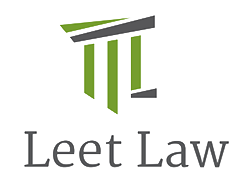
Title 1 of the Americans with Disabilities Act (ADA) of 1990 places duties and restrictions on U.S. employers with 15 or more employees in three phases of the employment process: the job interview and pre-offer phase, the post-job-offer phase, and during employment itself.
In the recruitment and job interview phase, affected employers cannot ask questions about an applicant’s mental or physical condition. In the post-offer phase, they can only enquire about medical conditions if they use the same standards for all applicants in the same job position. In the employment phase, they are required to engage in an interactive process if an employee requests a reasonable accommodation to perform his or her required job duties.
That sums up the ADA in very basic terms, but of course, the law goes much deeper and has many more nuances that an employer must be aware of – and adhere to. In addition, in California, the Fair Employment and Housing Act (FEHA) and other laws provide even broader protections for individuals with disabilities.
If you’re an employer in California who is facing issues related to the ADA or the FEHA regarding persons with disabilities, whether recruits, applicants, post-offer individuals, or employees in or around San Jose, California, contact us at Leet Law.
For more than a decade, Leet Law has been helping businesses comply with federal and state employment laws and representing them in civil litigation that threatens their livelihood. We also proudly serve clients in San Francisco, Oakland, Palo Alto, and throughout the Bay Area.
Overview of the ADA
The enactment of the Americans with Disabilities Act (ADA) was one of the signature achievements during the presidency of George H.W. Bush. The legislation is designed to protect not only individuals with mental or physical disabilities, but also those with perceived disabilities who are wrongly perceived as being disabled, and even those who have a relationship with a disabled person through companionship, family ties, or marriage.
Are Applicants and Employees Required to Disclose Disabilities?
The basic answer is “no.” As a job applicant, a person does not need to disclose a disability unless they need an accommodation to proceed with the interview and/or testing process. For instance, the applicant may have a mental condition that requires them to take longer on a 30-minute skills test required of all applicants for that position. They would then be able to request accommodation. Otherwise, the employer cannot ask about any disabilities they may have.
After a person receives a job offer, the employer can require them to undergo the same medical screening and questionnaire it requires of all other applicants in the same job category, but they cannot single anyone out for separate questioning or medical evaluation.
Once a person is hired, they are again under no obligation to disclose any disabling or limiting condition unless they need what is called a reasonable accommodation to perform their assigned duties. If an employee requests an accommodation, their employer is required to undertake what is called an “interactive process” with the employee.
In other words, employers must engage in finding a solution to help that person perform their duties. The employer is not necessarily required to provide the accommodation, but denying it must be based on the fact that the accommodation will present an “undue hardship” to the employer.
The Equal Employment Opportunity Commission (EEOC), which regulates and enforces the ADA, notes that most accommodations can be accomplished with only minimal outlay by employers, so it scrutinizes rejections of accommodations very closely and can impose conditions or sanctions on an employer who rejects an accommodation that is deemed reasonable in the eyes of the EEOC.
Disability Laws in California
In California, like at the federal level, a disability is defined as a mental or physical condition that limits a major life activity. Included in the category are those with cancer or AIDS/HIV. Examples of major life activities include breathing, walking, talking, hearing, seeing, sleeping, caring for one’s self, performing manual tasks, and working.
In California, those with disabilities are covered not only under the Fair Employment and Housing Act (FEHA), but also under the Unruh Civil Rights Act and the Disabled Persons Act. The FEHA covers businesses with five or more employees, while the ADA kicks in at 15 employees.
How an Attorney Can Help
Businesses must have policies in place that assert the rights and protections of disabled persons, including those as regarded as being disabled and those with a relationship with a disabled person. These policies must be disseminated and include provisions for compliance.
For instance, there should be stated procedures regarding any request for a reasonable accommodation, along with a system for reporting discriminatory acts against those who are covered by the ADA and state disability laws.
An experienced ADA and employment law attorney can help you draft these policies and practices and also protect you if an employee or group of employees report a perceived violation or seek legal action.
Thoughtful and Practical Legal Guidance
If you’re operating a business in or around San Jose, California, contact the legal team at Leet Law to help you keep in compliance with all federal and state laws regarding disabled job applicants and employees. With all the layers of legislation and varying legal decisions regarding the rights of the disabled, it can be confusing and challenging to keep up with your requirements and legal vulnerabilities. Reach out immediately with all your questions and concerns about the ADA, the FEHA, and other state and federal laws that apply. We will help you stay in compliance and skillfully represent you in any legal challenge.
